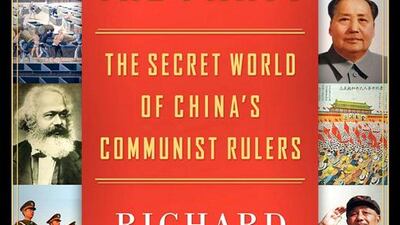China is set to relax its infamous one-child policy. The announcement came after the third plenum: a closed meeting of the most senior 400 members of the Chinese communist party.
Meanwhile, the party also will scrap its decades-old re-education-through-labour programme, which sees political opponents sent to labour camps without trial.
Why should Chinese domestic policy make for international headlines? Analysts expect China to replace the US as the world’s largest economy sometime between 2020 and 2030. Understanding the coming century means understanding China. Time to hit the books.
• For an introduction to the country’s notoriously opaque politics, turn first to The Party: The Secret World of China’s Communist Rulers (Penguin, Dh59) by Richard McGregor. There are no elections in China: the ruling six-man Politburo Standing Committee simply changes every 10 years, with reference to no one. But a fierce commitment to one mission – keeping living standards rising – means that the party’s hold on power is as secure as ever, says McGregor.
• Next, read Vanessa Fong’s Only Hope: Coming of Age Under China’s One-Child Policy (Stanford University Press, Dh118). The one-child policy was introduced in 1979 to help curtail population pressure. The Chinese authorities say that it prevented 250 million births between 1980 and 2000; critics point to abuses of human rights such as forced abortions. Meanwhile, says Fong, a generation of only children carry the weight of their parents’ expectations.
• To plunge beneath the surface of daily life – and domestic politics – in China, though, go to one of its most astute and vocal critics. In 2006, the internationally recognised artist Ai Weiwei started blogging about everything from government policy, art and architecture to being investigated for fraud. The Chinese authorities shut his blog down in 2009, but the posts are collected in Ai Weiwei’s Blog (MIT Press, Dh106). Taken together, they form an invaluable social document at the start of this 21st, and thoroughly Chinese, century.

